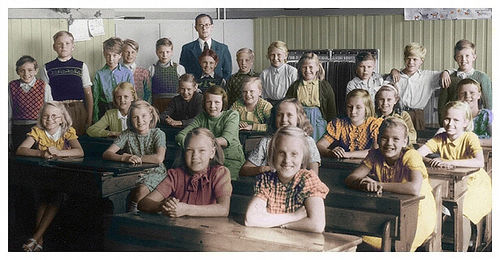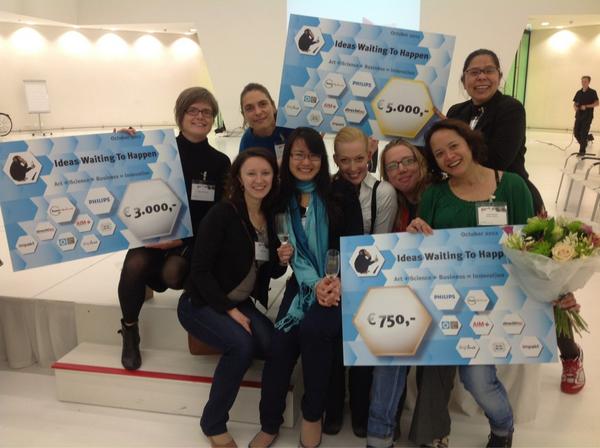Any ARG has several key ingredients such as
- a puppet master
- a rabbit hole
- a curtain
- TING rhetoric
 A puppet master is the person controlling the game, giving out clues and keeping an eye on plot development. The starting point of an ARG is known as a trail head or a rabbit hole, the latter being a reference to Alice in Wonderland “In another moment down went Alice [into the rabbit hole] never once considering how in the world she was going to get out of it”. Usually the rabbit hole is a website. The curtain marks the separation between the players and the puppet masters, it refers to the curtain of a magician; if you look behind it you will learn how the trick works and ruin the magic of the experience.
A puppet master is the person controlling the game, giving out clues and keeping an eye on plot development. The starting point of an ARG is known as a trail head or a rabbit hole, the latter being a reference to Alice in Wonderland “In another moment down went Alice [into the rabbit hole] never once considering how in the world she was going to get out of it”. Usually the rabbit hole is a website. The curtain marks the separation between the players and the puppet masters, it refers to the curtain of a magician; if you look behind it you will learn how the trick works and ruin the magic of the experience.
An ARG treats itself as if it were real; all physical elements used by the puppet master exist and are functional. There is no overtly present rule set or designated arena for play. All evidence of the game being a game is buried and whatever is incorporated in the game has to be non-fictional but actual. This pattern of the game denying it is a game is known as the This Is Not a Game or TING rhetoric (McGonical, 2003; Montola, 2005).
Elan Lee, lead game designer of the ‘first’ ARG The Beast comments; “Players were never meant to believe the This Is Not a Game rhetoric… it was obviously a game. There was nothing we could do about that. What we could do was make it a game with an identity crisis. If I know it’s a game and you know it’s a game, but IT doesn’t know it’s a game, then we’ve got a conflict.”
Players hold on to this rhetoric and actually protect it by ignoring possible cracks when reality seeps through at places where the curtain is slightly lifted (Stenros, Montola, Waern, & Jonsson, 2007). Players want to go along with the game believing itself, but the awareness of the game-as-game remains.
ARGs are part of the pervasive gaming genre which is “a genre of gaming systematically blurring and breaking the traditional boundaries of a game”. Expansion of a game beyond its boundaries in spatial, temporal and social dimensions in itself is not new but “pervasive gaming is differentiated with the use of these expansions in new efficient ways to produce new kinds of game play experiences” (Montola, 2005).
 McGonical (2003) defines different types of play further by making a distinction between pervasive play and immersive play. Pervasive play consist of mixed reality games that use mobile, omnipresent and embedded digital technologies to create virtual playing fields in everyday spaces. Immersive play is a form of pervasive play that adds the TING rhetoric to the mix. Immersive gaming was designed to “integrate itself fully into the off-line lives of its’ players”. The game achieves this by using everyday digital devices. So no special toys, consoles or joysticks but the phones, PDA’s and internet connections that the players already had were now part of the game.
McGonical (2003) defines different types of play further by making a distinction between pervasive play and immersive play. Pervasive play consist of mixed reality games that use mobile, omnipresent and embedded digital technologies to create virtual playing fields in everyday spaces. Immersive play is a form of pervasive play that adds the TING rhetoric to the mix. Immersive gaming was designed to “integrate itself fully into the off-line lives of its’ players”. The game achieves this by using everyday digital devices. So no special toys, consoles or joysticks but the phones, PDA’s and internet connections that the players already had were now part of the game.
The ARG The Beast intrigued their one million player base by contacting them at home or at work, sending emails from their own accounts, sending them packages in the mail and spreading over 4000 digital files over various websites (Dena, 2008). For the players The Beast was everywhere and anything could be a potential clue.
This blog is a shaken but not stirred piece of my thesis “How ARG changes reality” which you can find here
Introducing Alternate Reality Games – blog 1 of 3 –
Alternate Reality Gaming – Ingredients – blog 2 of 3
Alternate Reality Gaming – Examples – blog 3 of 3 –

 The six key qualities that describe an ARG are
The six key qualities that describe an ARG are

 Dr. Alma Schaafsel at the Games in Healthcare: hype or hope? the conference said that successful development requires good connections with people with expertise in their fields. This is precisely what most projects lack: open collaboration between the right experts. Many healthcare experts from
Dr. Alma Schaafsel at the Games in Healthcare: hype or hope? the conference said that successful development requires good connections with people with expertise in their fields. This is precisely what most projects lack: open collaboration between the right experts. Many healthcare experts from